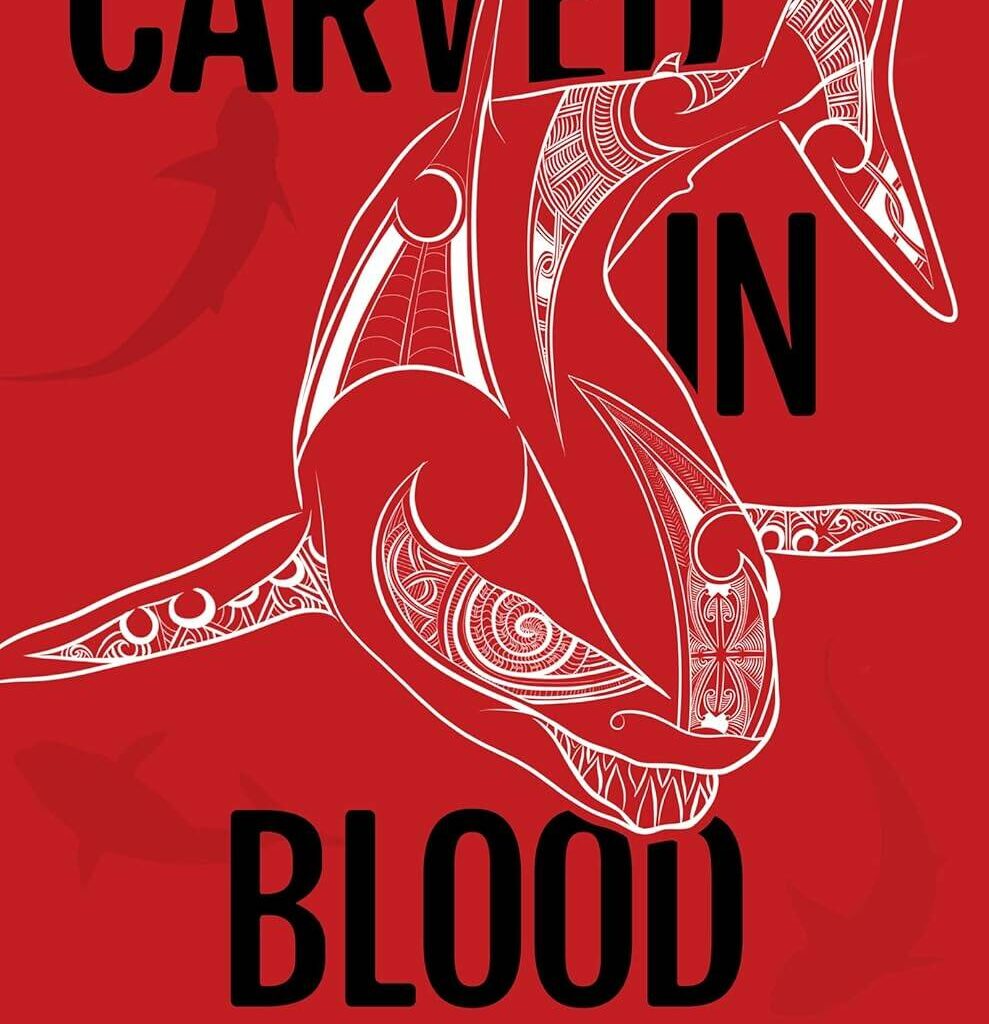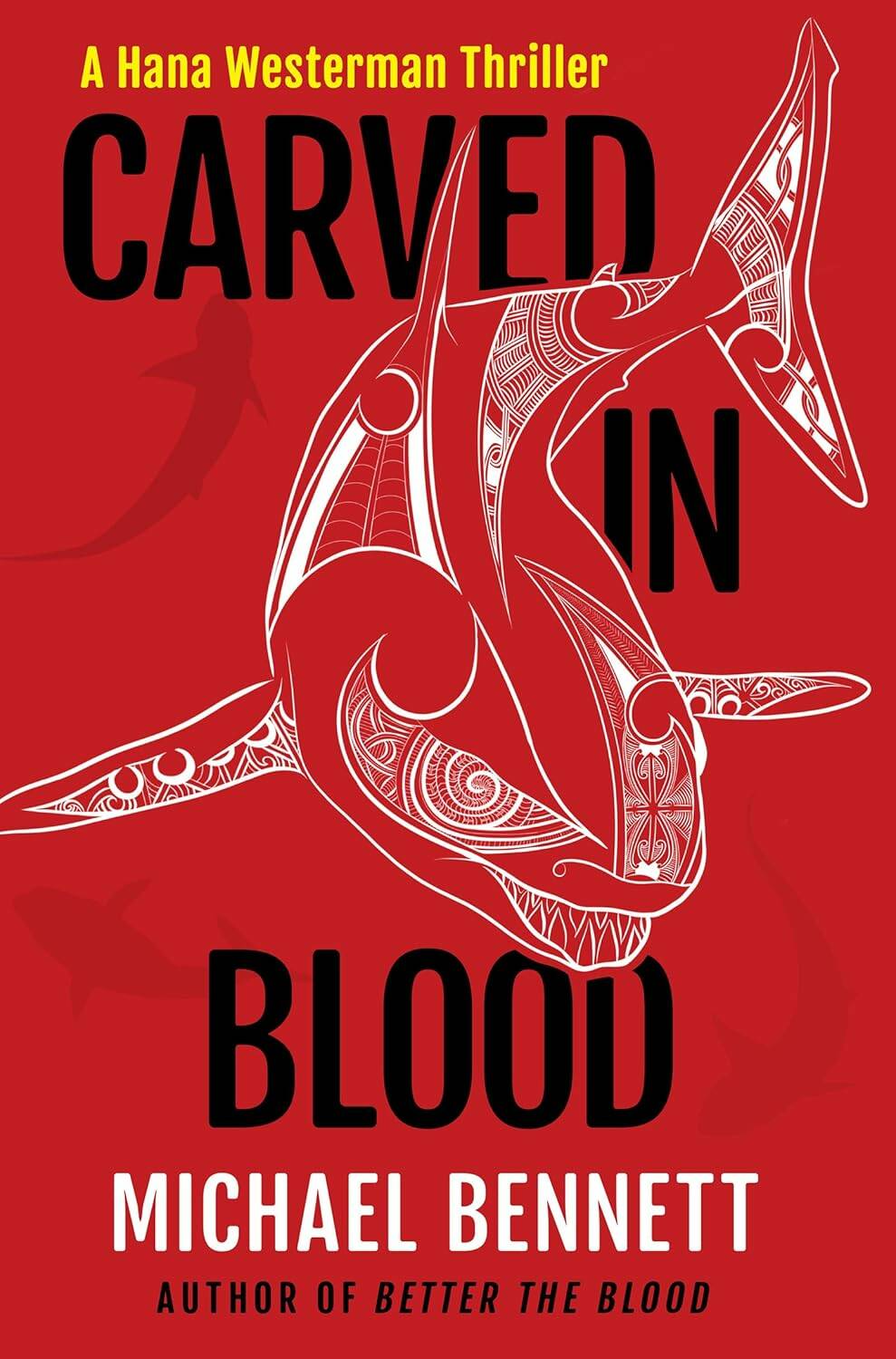Det.-INSP. Jaye Hamilton makes a brief liquor-store stop on the way home in Auckland to celebrate his daughter’s engagement — and a robber is beating the clerk to a pulp. Jaye jumps into action to do his duty, and two shots later is in an induced coma, clinging to life.
The evidence points to a young Maori man who’s a gangster wannabe, a presumed punk transporting drugs and looking to move up in the underworld. A lot of evidence. Much more evidence than normal.
Jaye’s plight devastates his young second family and brings his ex-wife, former detective sergeant Hana Westerman, back to the police force, which welcomes her onto the case despite her obvious connections. She’s the mother of Jaye’s newly engaged daughter.
Carved in Blood
Hana immediately fears something about the shooting just doesn’t smell right. Too much evidence.
Some murder mystery fan in your book club will self-aggrandizingly point out that, in such tales, the innocent bystander was often the target all along.
But so much evidence points to that one suspect. So much evidence.
Carved in Blood is the third superb Hana Westerman police procedural by New Zealand author Michael Bennett who, like Westerman, is Maori.
It’s a whodunit, and indeed a terrific one, but Bennett’s books are much more powerfully about race in New Zealand, about how Indigenous people and especially young men are incarcerated at a rate triple their share of the population, about how Indigenous people achieving in the white world face discrimination every day of their lives.
Race does not stop at Indigenous people and descendants of British settlers. Bennett tells us that New Zealand has had significant immigration from Asia.
Hana has a budding relationship with a private detective who’s from Korea. His aunt tells Hana to back off; Koreans don’t approve of divorced women, she says, and her brown skin traditionally means someone who works in the fields and is thus unworthy of their family. Don’t be so subtle, auntie.
Are Korean immigrants bigots? Some of them for sure, Bennett tells us.
And while there are homegrown gangsters afoot, the primary villains in Carved in Blood come from China, so entrenched that New Zealand police have a unit just to investigate Asian gangs. The easiest way for international students to earn cash is to frequent casinos where they launder money for their Asian mobsters.
There are subplots galore. Hana rescued a nephew from the clutches of a gang lord who’s hanging about, recruiting impoverished kids into the trade — and the gang lord is into grudges. A police officer, who had his leg blown off, now wears a prosthetic as he trains for the arduous physical tests that could get him out from behind a desk — but that rage he shows occasionally, that couldn’t possibly be triggered by steroids… surely not.
Winnipeg Free Press | Newsletter

Jaya and Hana’s daughter Addison is betrothed to her partner, Plus-One, whose race and gender never are never explored in much detail. The more Hana sleuths what happened to Jaye, the more threatened her family becomes.
Hana’s widowed father has fallen in love; Hana doesn’t know how she feels about that, especially as her father shows a sign here and a memory lapse there of what could be the early stages of dementia.
And Hana’s boss is a Maori woman fighting her way up through the ranks after experiencing awful things in Afghanistan. Maybe even doing awful things in Afghanistan.
Michael Bennett books aren’t easy. But oh my, they are good.
Retired Free Press reporter Nick Martin fondly remembers touring New Zealand 45 years ago with a coach-load of wild Aussies; he was among a handful of people on the ferry crossing between north and south islands who did not meet up with chug chunder (best not to Google).


